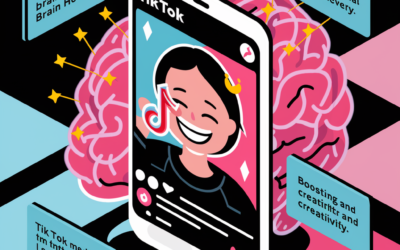Breakups can be incredibly taxing on the emotions and many people struggle to move on after a relationship ends. While it's normal to feel a range of emotions after a breakup, some people may find themselves trapped in negative thought patterns that prevent them from moving forward. These negative thought patterns are known as cognitive distortions, and they can significantly impact your ability to heal after a breakup. In this article, we will explore 15 common cognitive distortions and examples of how each one can prevent you from getting over a breakup.
Table of Contents
- Introduction
- What are Cognitive Distortions?
- All or Nothing Thinking
- Overgeneralization
- Mental Filter
- Disqualifying the Positive
- Jumping to Conclusions
- Magnification and Minimization
- Emotional Reasoning
- Should Statements
- Labeling and Mislabeling
- Personalization
- Blaming
- Fortune Telling
- Mind Reading
- Catastrophizing
- Conclusion
- FAQs
What are Cognitive Distortions?
Cognitive distortions are negative thought patterns that can impact how you perceive and interpret events in your life. These distortions can lead to feelings of anxiety, depression, and stress, and they can significantly impact your ability to move on from a breakup. Identifying and challenging these distortions can be an important part of the healing process after a relationship ends.
All or Nothing Thinking
All or nothing thinking is a cognitive distortion in which you view situations in black and white terms, with no shades of gray. For example, after a breakup, you might think, "I'll never find love again," or "I'm a complete failure." This type of thinking can prevent you from seeing the positive aspects of your life, such as your friends, family, or career.
Overgeneralization
Overgeneralization is a cognitive distortion in which you take a single negative event and use it to predict future outcomes. For example, you might think, "I'll never be happy again," or "All men/women are cheaters." Overgeneralizing can prevent you from seeing the potential for positive outcomes in the future.
Mental Filter
Mental filter is a cognitive distortion in which you focus solely on negative aspects of a situation, while ignoring the positive aspects. For example, after a breakup, you might focus only on the negative aspects of the relationship and forget about the good times you had with your partner. This type of thinking can prevent you from seeing the positive aspects of your life, which can be crucial for healing.
Disqualifying the Positive
Disqualifying the positive is a cognitive distortion in which you dismiss positive experiences, accomplishments, or qualities about yourself. For example, after a breakup, you might discount the positive aspects of the relationship, such as the good times you had with your partner. Disqualifying the positive can prevent you from seeing the positive aspects of your life, which can be crucial for healing.
Jumping to Conclusions
Jumping to conclusions is a cognitive distortion in which you make negative assumptions about a situation without having all the facts. For example, you might assume that your ex-partner is happier without you, even though you have no evidence to support this belief. Jumping to conclusions can prevent you from seeing the reality of a situation and can lead to unnecessary feelings of anxiety and depression.
Magnification and Minimization
Magnification and minimization are cognitive distortions in which you exaggerate the importance of negative events and minimize the importance of positive events. For example, after a breakup, you might magnify the negative aspects of the relationship, such as your ex-partner's flaws, while minimizing the positive aspects, such as the good times you had together. This type of thinking can make it difficult to move on from a breakup and can lead to feelings of resentment and bitterness.
Emotional Reasoning
Emotional reasoning is a cognitive distortion in which you believe that your feelings are evidence of the truth. For example, you might think, "I feel unlovable, so it must be true." Emotional reasoning can prevent you from seeing the reality of a situation and can lead to feelings of hopelessness and despair.
Should Statements
Should statements are a cognitive distortion in which you hold yourself to strict, unrealistic standards. For example, after a breakup, you might think, "I should have done more to save the relationship," or "I should have seen the signs that the relationship was failing." Should statements can prevent you from accepting the reality of a situation and can lead to feelings of guilt and shame.
Labeling and Mislabeling
Labeling and mislabeling are cognitive distortions in which you assign labels or names to yourself or others based on one negative experience. For example, you might label yourself as a failure because of one relationship that didn't work out. Labeling and mislabeling can prevent you from seeing the complexity of a situation and can lead to feelings of self-doubt and worthlessness.
Personalization
Personalization is a cognitive distortion in which you believe that everything that happens is your fault. For example, after a breakup, you might think, "If only I had been more attractive/successful/attentive, my ex-partner would still be with me." Personalization can prevent you from accepting that some situations are outside of your control and can lead to feelings of guilt and shame.
Blaming
Blaming is a cognitive distortion in which you assign responsibility for a negative event to someone else. For example, after a breakup, you might blame your ex-partner for the failure of the relationship, without acknowledging your own role in the breakup. Blaming can prevent you from accepting your own mistakes and can lead to feelings of resentment and anger.
Fortune Telling
Fortune telling is a cognitive distortion in which you predict negative outcomes without evidence. For example, you might think, "I'll never find someone as good as my ex-partner," or "I'll be alone forever." Fortune telling can prevent you from seeing the potential for positive outcomes in the future and can lead to feelings of hopelessness and despair.
Mind Reading
Mind reading is a cognitive distortion in which you assume you know what others are thinking without evidence. For example, you might assume that your ex-partner is happy without you, even though you have no evidence to support this belief. Mind reading can prevent you from seeing the reality of a situation and can lead to unnecessary feelings of anxiety and depression.
Catastrophizing
Catastrophizing is a cognitive distortion in which you exaggerate the importance of negative events and predict catastrophic outcomes. For example, you might think, "I'll never be happy again," or "I'll never find someone else." Catastrophizing can prevent you from seeing the potential for positive outcomes in the future and can lead to feelings of hopelessness and despair.
Conclusion
Breakups can be a rough experience, and it's normal to go through a range of emotions after a relationship ends. However, it's important to recognize and challenge cognitive distortions that can prevent you from moving forward. By identifying and challenging negative thought patterns, you can begin to heal and move on from a breakup. In addition, you might also find subconscious programs and beliefs that are preventing you from getting over a breakup.
FAQs
What is a cognitive distortion? A cognitive distortion is a negative thought pattern that can impact how you perceive and interpret events in your life.
What are some examples of cognitive distortions? Some examples of cognitive distortions include all-or-nothing thinking, overgeneralization, emotional reasoning, should statements, labeling and mislabeling, personalization, blaming, fortune telling, mind reading, and catastrophizing.
How can I challenge my cognitive distortions? One way to challenge cognitive distortions is to ask yourself if your thoughts are based on evidence and to consider alternative explanations for the situation.
How long does it take to get over a breakup? The time it takes to get over a breakup can vary depending on the individual and the circumstances of the breakup. It's important to allow yourself time to heal and to seek support from friends, family, or a mental health professional if needed.
Additionally, It can be helpful to talk to a friend or family member about your feelings or seeking the help of a therapist for breakups. If you're feeling anxiety there is also online anxiety therapy from licensed counsellors which can help with triggering emotions and reactions you might still have about your ex. There are applications that have meditations and audios to help you sleep, relax, get over stuff. One to consider is the headspace app because they have good content and a free trial so you can checkout their goods and experience what works best for you.
























